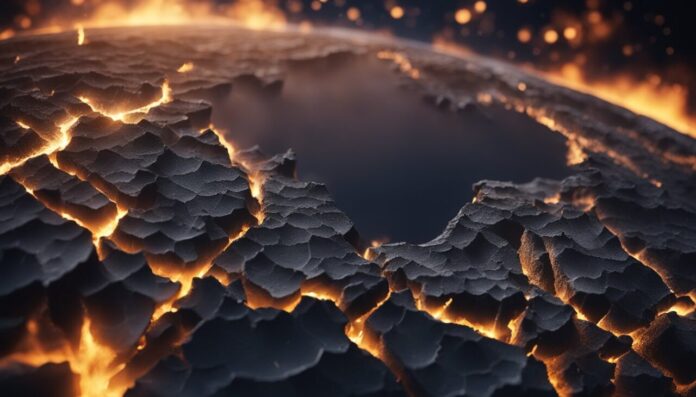
The question of when the world will end is always somewhere at the back of our heads. We are by our nature (well most of us), curious beings and it’s hard not to ask this question at least once in your lifetime.
Some believe it will end in a burning apocalypse, while others think it will simply fade away over time.
Despite the numerous predictions made by religious leaders, scientists, and even fictional writers, the truth is that no one knows for sure when the world will end.
One of the most popular theories about the end of the world is the idea of a catastrophic event, such as a meteor impact or a massive volcanic eruption. These events have occurred in the past and have had devastating effects on the planet.
However, scientists have been monitoring potential threats and have taken some steps to prevent such disasters from occurring. While the possibility of a catastrophic event cannot be completely ruled out, it is unlikely to happen in the near future.
Another theory about the end of the world is that it will be caused by human actions, such as climate change or nuclear war. These threats are very real and have the potential to cause significant damage to the planet. And to humanity as a whole.
And then there are theories about the end of the whole universe. Those theories are much more hypothetical and those scenarios will perhaps play out in the very distant future.
Whatever the theory is, it is interesting to explore it to find out the future of humanity, the earth, the solar system, and in the end – the whole universe.
So, let’s start with some historical predictions.
Note: we’ve already written a lot about similar topics so we invite you to check out the following articles:
Top 10 Historical Predictions
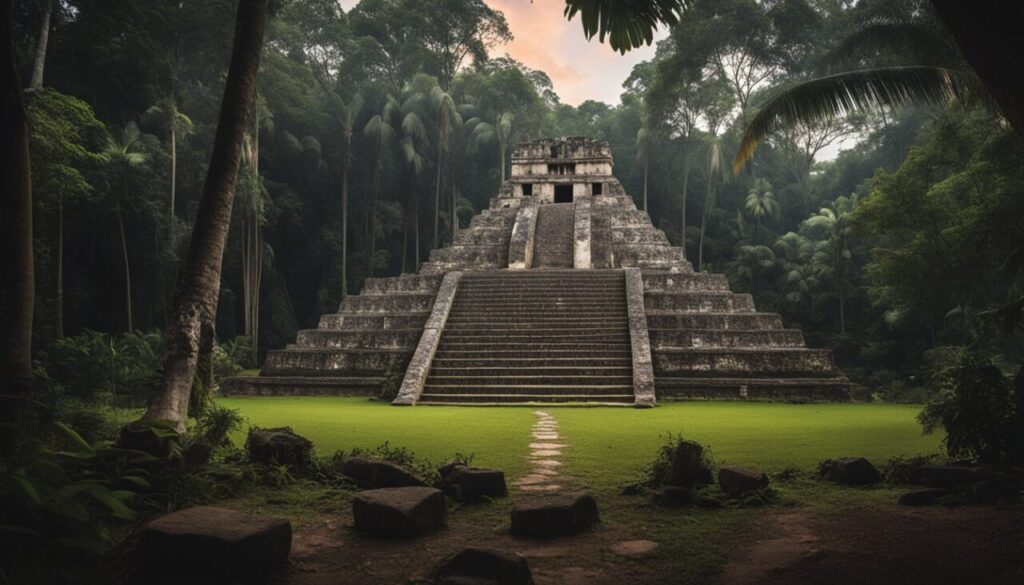
Throughout history, people have made a lot of predictions about the end of the world. Some of the earliest recorded prophecies come from ancient civilizations such as the Mayans, who predicted that the world would end in 2012.
However, everyone reading this text knows that this prediction was proven false, and the Mayan calendar simply marked the end of a cycle.
Other ancient cultures, such as the Egyptians and Greeks, also made predictions about the end of the world. The Egyptians believed that the world would end in a catastrophic flood, while the Greeks believed that the world would end in a great battle between the gods.
Additionally, many of the world’s major religions have their own predictions about the end of the world. In Christianity, the Book of Revelation predicts a series of events that will lead to the end of the world, including the rise of the Antichrist and the Battle of Armageddon.
In Islam, the Hadith contains prophecies about the end of the world, including the appearance of the Mahdi, a messianic figure who will appear before the end of the world.
And so, let’s summarize the top 10 historical predictions about the end of the world in a simple table:
| Prediction | Predicted Date | Predicted By | Outcome |
| Nostradamus’ Prophecies | Various interpretations | Nostradamus | Predicted various cataclysmic events and the end of the world through his cryptic writings. Interpretations vary widely, and none have definitively come true. |
| Y2K Bug | January 1, 2000 | Various technologists and media | Predicted widespread computer failures due to the rollover from 1999 to 2000, leading to societal collapse and the potential end of the world. Ultimately, the impact was minimal due to extensive preparations. |
| Harold Camping’s Rapture Predictions | Multiple dates (1994, May 21, 2011, October 21, 2011) | Harold Camping, Family Radio | Predicted the Rapture and Judgment Day based on his interpretation of the Bible. None of the predicted dates resulted in the end of the world. |
| Mayan Calendar End Date | December 21, 2012 | Various New Age groups | Predicted the end of the world based on the end of the Mayan Long Count calendar cycle. No catastrophic events occurred. |
| Halley’s Comet | 1910 | Various groups | Predicted Earth would pass through the comet’s tail, leading to widespread destruction due to cyanogen gas. No such event occurred. |
| Various Christian Doomsday Predictions | Various dates throughout history | Various Christian groups | Predicted the end of the world based on interpretations of biblical prophecies. None of the predicted dates resulted in the end of the world. |
| Montanism | 2nd Century | Montanus and followers | Predicted that the New Jerusalem would descend from heaven to a small village in Phrygia (modern-day Turkey) and that the end of the world was imminent. |
| Joachim of Fiore’s Three Ages | 1260s | Joachim of Fiore | Predicted the end of the world around 1260, based on his interpretation of the Book of Revelation and his theory of three ages of human history. |
| Hale-Bopp Comet Cult | March 1997 | Heaven’s Gate cult | Predicted that the appearance of the Hale-Bopp comet signaled the arrival of a spaceship that would take members’ souls to another level of existence. Resulted in mass suicide by cult members. |
| Islamic Mahdi and End Times | Various interpretations | Various Islamic scholars | Predictions about the appearance of the Mahdi, a messianic figure in Islam, and the signs of the end times, including major and minor signs preceding the Day of Judgment. Interpretations vary among scholars and sects within Islam. |
Okay, now that we have shared some of the most popular historical predictions, all of which, of course, were proven false, let’s explore some more reliable theories and predictions backed by science.
Scientific Theories

Asteroid Impact
One of the most popular scientific theories about the potential end of the world is the occurrence of different astronomical events. Scientists believe that the Earth may be impacted by a comet or asteroid, causing a catastrophic event.
For example, here are several asteroids that could potentially impact Earth in the future:
- Apophis (2004 MN4): Although initial calculations raised concerns about potential impacts in 2029 or 2036, subsequent observations have ruled out the possibility of impact in 2029. The next date of concern is April 13, 2068, when there is a small chance of impact.
- Bennu (1999 RQ36): Bennu is not currently on a collision course with Earth, but its orbit is being closely monitored due to its proximity and size. The closest approach in the foreseeable future is in 2135, with a very small chance of impact.
- 2009 FD: No specific potential impact dates have been identified for 2009 FD. It’s continually monitored, and any potential future close approaches are regularly assessed.
- 1950 DA: This asteroid’s next close approach to Earth is expected in 2880, with a very small chance of impact. Its orbit is being tracked, and further observations will refine predictions.
- 2004 VD17: This asteroid is not currently on a trajectory to impact Earth. Its orbit is being monitored, and any potential future close approaches will be assessed.
Out of those 5 asteroids, 1950 DA is the largest one. So let’s compare its potential impact with atomic bomb exploded on Hiroshima.
The atomic bomb detonated over Hiroshima, “Little Boy,” had an explosive yield of approximately 15 kilotons of TNT equivalent. This means it released the energy equivalent to 15,000 tons of TNT.
On the other hand, 1950 DA, being a much larger body with an estimated diameter of about 1.1 kilometers (0.67 miles), could release significantly more energy upon impact.
Given its size, an impact by 1950 DA could release energy equivalent to several megatons (millions of tons) of TNT. The exact energy release would depend on the specific characteristics of the impact, but it could far exceed the energy released by the Hiroshima atomic bomb.
Such an impact by an asteroid of this size could have catastrophic consequences, causing widespread destruction over a large area, triggering tsunamis (if it impacts in an ocean), and potentially leading to significant loss of life and long-term environmental effects.
Could it end the whole world? Probably not.
Namely, a large asteroid that caused the extinction of dinosaurs was approximately 10-15 kilometers in diameter and that’s significantly larger than the 1950 DA asteroid.
Black Hole Collision With Earth
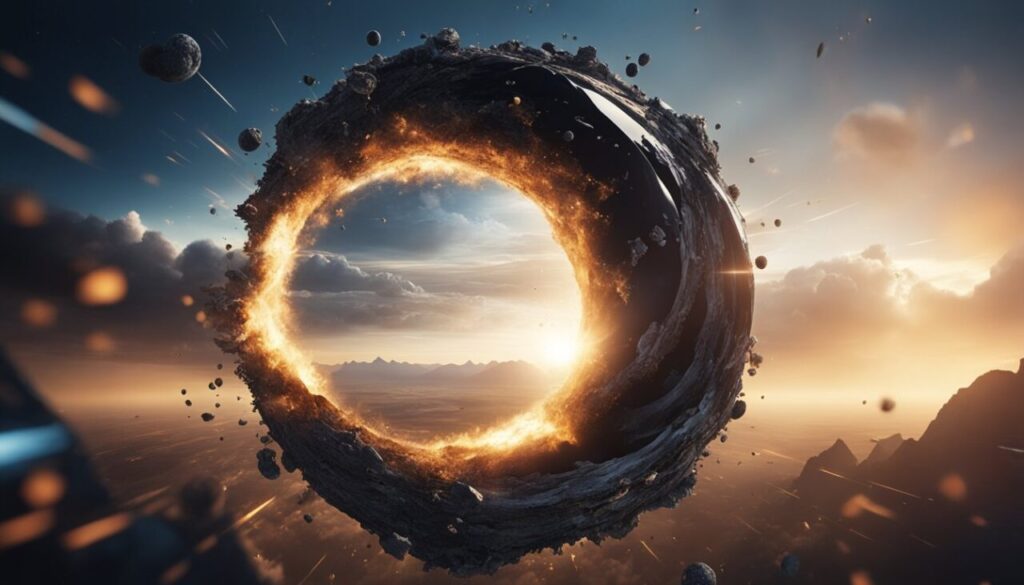
Another theory is the collision of a black hole with Earth. If a black hole were to come close enough to our planet, it could potentially pull us into its gravitational field and destroy us.
Check out our article where we’ve written exactly about that scenario: ‘What Would Happen If a Black Hole Collided with Earth?’.
When could this potentially happen: There is almost zero chance of this happening; however, it is worth considering. So, let’s take the closest black hole as an example. Namely, Gaia BH1 is the closest black hole to Earth, as it is 1560 light-years away from Earth currently. Assuming a “closing speed” with our solar system of 400 km/sec, then we could say that this black hole could be nearest to Earth in around 1 million years. And then, if it were on exactly the right course to collide with Earth, we would be potentially destroyed.
Supernova Explosion
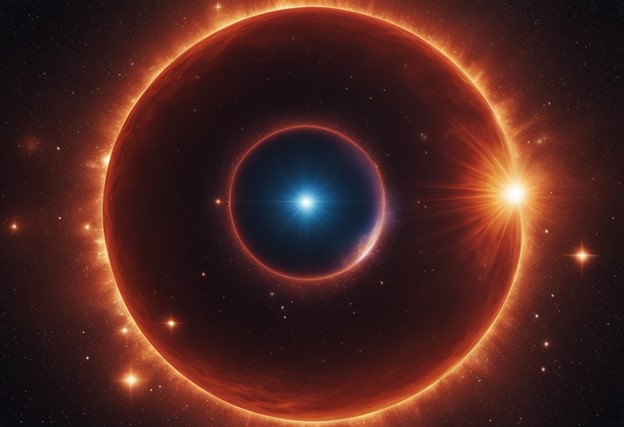
Another possibility is a supernova, a massive explosion that occurs when a star runs out of fuel. Chances of this happening anytime soon (a.k.a in the next million years) are rather slim. There are some supernova explosions expected to happen in the next 100,000 to 500,000 years however they are not close enough to impact Earth in a deadly way.
When could this potentially happen: as mentioned, the chances of this happening are slim to none, however, let’s assume that Betelgeuse, a red supergiant star located in the constellation of Orion, could harm Earth. Betelgeuse is relatively close to Earth (about 642 light-years away) and is known to be near the end of its life cycle. So, when will it explode? Well, many astronomers agree that it will explode in around 100,000 years. However, as mentioned despite being relatively close to Earth in astronomical terms, Betelgeuse is still hundreds of light-years away, so even if it were to explode tomorrow, its light and effects would take centuries to reach us. And what effects could we feel here on Earth? Well, most likely it would briefly become as bright as the full Moon and potentially have some effects on Earth, such as disrupting satellite communications and increasing radiation levels. But probably (99,999999% chance) no end-of-the-world type of effects.
Evolution of The Sun
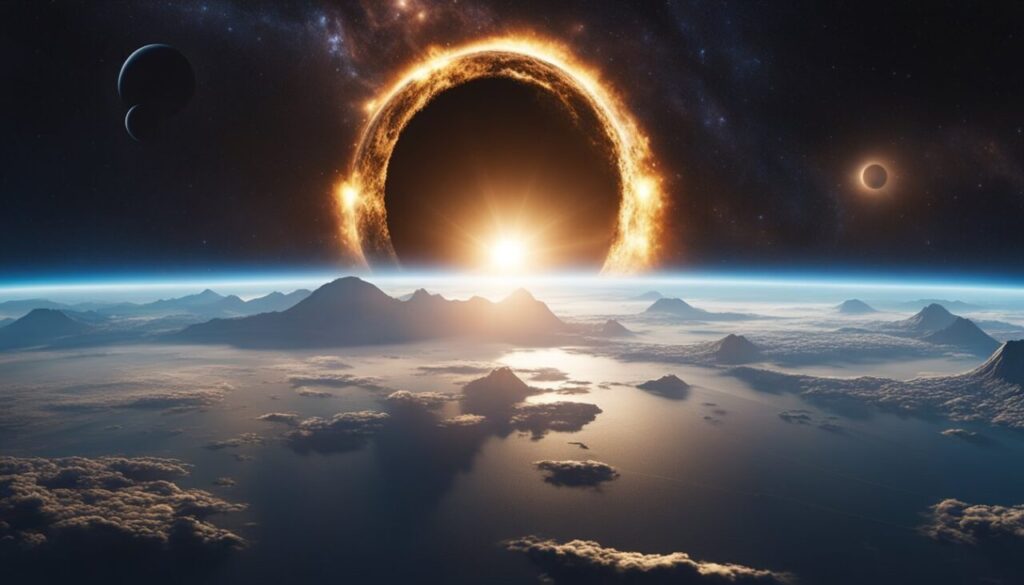
As we’ve written in our article ‘What Will Earth Look Like in 1 Billion Years?‘, the solar luminosity will be 10% higher in 1 billion years, which will slowly cause the evaporation of oceans and make Earth completely uninhabitable.
Then, in approximately 5 billion years, our star will run out of hydrogen fuel, and it will become a red giant. During the red giant phase, there will be no life on nearby planets. Not only that, but the Sun will probably completely engulf planets like Venus, Mercury, and Earth.
When could this potentially happen: In approximately 1 to 1.3 billion years, Earth will become completely uninhabitable for humans because of the increased Sun’s luminosity.
Environmental Collapse & Climate Change
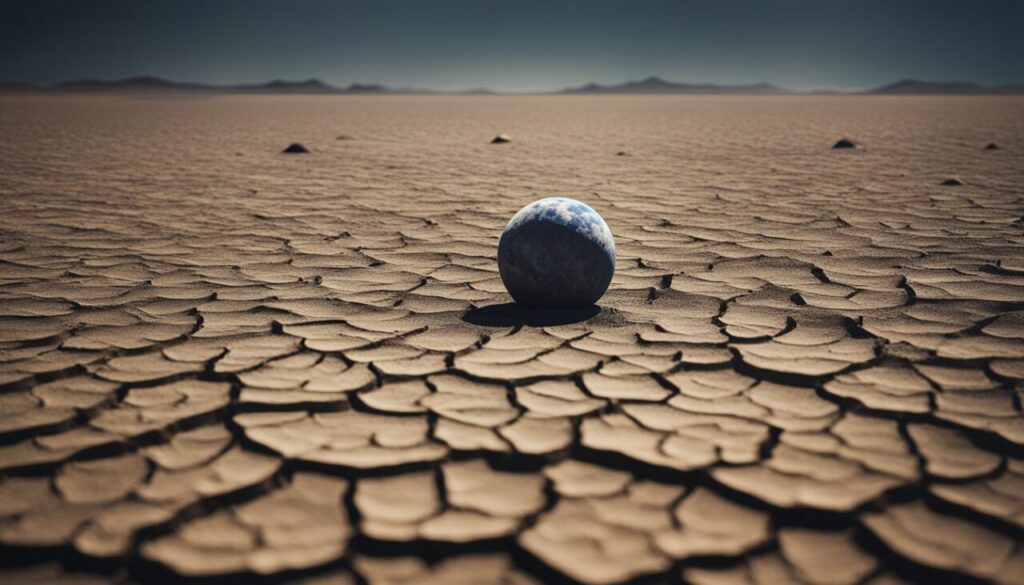
Environmental collapse is a theory that suggests that the Earth’s natural resources will be depleted, leading to widespread famine, disease, and ultimately the end of human life.
Additionally, there are many theories about a potential significant increase in world temperatures which would over time lead to Earth becoming completely uninhabitable planet for humans.
When could this potentially happen: Some extreme alarmists say that this could happen as early as 2050 or 2100; however, this does not seem likely. Namely, there have already been more than 50 so-called climate apocalypse predictions, and none of them have materialized. Nonetheless, humans obviously have the potential to destroy the environment completely, and thus we would predict that this might happen in the next 1000 years if society does not stop its environmentally unfriendly progress.
Supervolcano Eruption
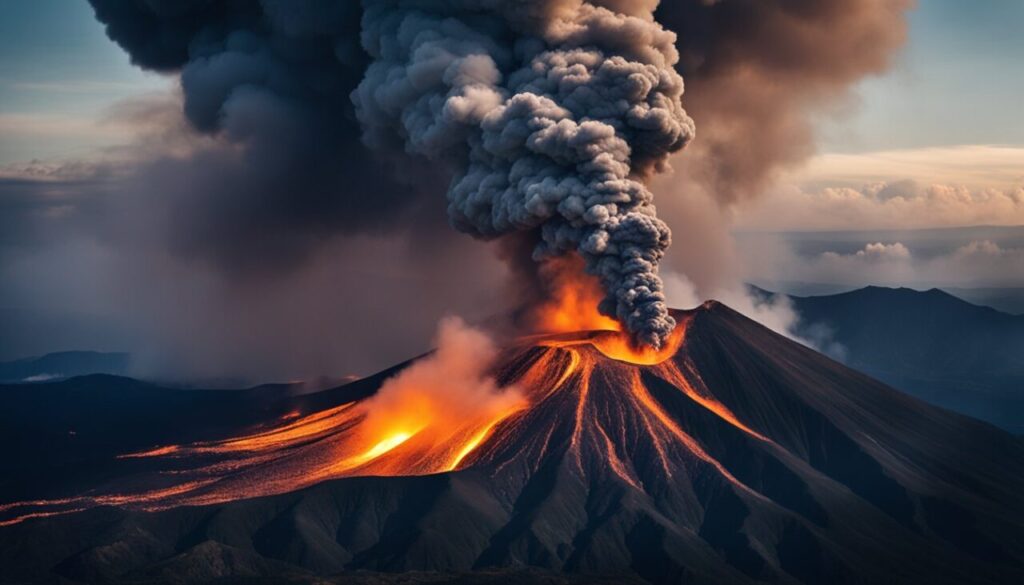
A supervolcano eruption is another possibility for the end of the world. Namely, when a supervolcano erupts (and there will be supervolcano eruptions in the future), it can send huge clouds of ash high into the sky.
These clouds can block out sunlight, leading to a cooling effect on the Earth’s surface. Additionally, the gases released during the eruption can contribute to the formation of aerosols, which further block sunlight and cool the planet. This cooling effect (global winter) can last for months or even years, disrupting ecosystems, agriculture, and climate patterns worldwide.
Now, the possibility of such a prolonged global winter (10+ years) is rather low, so this certainly wouldn’t mean the end of the world for all humans! But it would have a devastating impact on a huge percentage of people
We’ve written extensively about this possibility in our article about Yellowstone Supervolcano.
When could this potentially happen: 500,000 – 1,000,000 years from now.
Technological Singularity

Finally, the technological singularity is a theory that suggests that artificial intelligence will surpass human intelligence, leading to a complete restructuring of society and potentially the end of the world as we know it.
This potential end of the world for all humans due to technological singularity could arise from several scenarios:
- Uncontrolled AI: If artificial intelligence (AI) becomes significantly more intelligent than humans and reaches a point of uncontrollable self-improvement, it may act in ways that are detrimental to humanity’s existence. This could involve AI prioritizing its own goals over human survival or inadvertently causing harm while attempting to achieve its goals. Whatever those goals may be.
- Existential Risks: As AI becomes increasingly powerful, it may develop capabilities that pose existential risks to humanity. For example, if AI gains control over powerful technologies such as nanotechnology or biotechnology, it could inadvertently unleash catastrophic events, such as global pandemics or environmental disasters, that threaten human civilization.
- Economic Disruption: The widespread adoption of advanced AI and automation could lead to significant economic disruption, including widespread unemployment and social unrest. If not properly managed, this could result in complete societal collapse and widespread suffering. Now, while this wouldn’t mean the complete end of the world it would certainly mean the end of the world as we know it.
- Loss of Control: As AI systems become more autonomous and capable of making decisions without human intervention, there is a risk that humans may lose control over these systems. If AI systems act in ways that are not aligned with human values or objectives, it could lead to unintended consequences that threaten human survival.
When could this potentially happen: Vernor Vinge predicted that technological singularity could happen by 2030. Ray Kurzweil is predicting that singularity will happen by 2045, however, he is not referring to singularity in a way that it will destroy society. If we would play a game of guessing, we’d say that there is a 1-3% chance that (destructive) singularity will happen by 2100.
Okay, so now that we have all historical predictions and scientific perspectives, let’s take a deeper look at the difference between the end of the world for us and the end of everything – the end of the whole universe.
Note: In our previous article, we explained in detail how the end of the universe could happen in the next quadrillion, quintillion, nonillion, and googol years.
End of Earth vs End of Universe
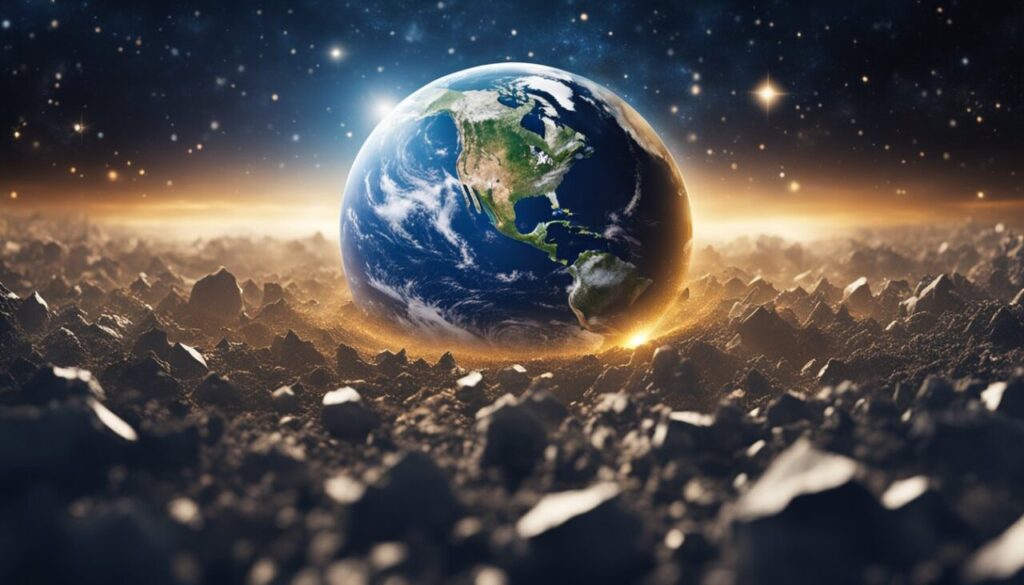
The end of Earth and the end of the universe are two very different events that will occur at immeasurably different timescales.
While the end of Earth is a more immediate concern for humanity, the end of the universe is a much more distant and (still) theoretical event.
Universe in Googol Years from Now
According to current scientific understanding, the universe is estimated to be around 13.8 billion years old. However, the universe is not static and is constantly changing.
Over time, stars will exhaust their fuel and die, eventually leaving the universe a cold, dark place. This process will take trillions of years, and some estimates suggest that the last star in the universe will burn out in around 100 trillion years.
But even after the last star has gone out, the universe will not be completely dead. There will still be black holes, which will continue to evaporate over an incredibly long timescale.
In fact, it is estimated that the last black hole will evaporate in around googol years (10^100), a number so large that it is difficult to comprehend.
And so, there are 3 different aspects that we need to consider when asking the question; ‘When will the world end?’
Those are:
- When will the world end for humans? That is – when will humans cease to exist on this planet?
- When will Earth die?
- When will the whole universe die?
We’ve already provided the answer to the first question – humans will certainly not be able to live on Earth anymore in 1 to 1.3 billion years from now. Earth will surely become an uninhabitable planet.
Now, that does not have to mean that humans will cease to exist because of that.
Namely, if we survive for the next 1 billion years, well then, we will unquestionably develop new technologies that will enable us to travel to distant planets and galaxies and build our habitats there.
So basically, humans could perhaps live longer than Earth does! That’s an interesting thought, huh?
And that leads us to the second question – When will Earth perish?
Well, probably in approximately 5 billion years. As mentioned, that is the expected time when our Sun will become a large red giant, and it will almost certainly engulf the whole Earth.
Conclusion

While many theories and predictions have been made about the end of the world throughout history, none have come to fruition. The idea that the world will end on a specific date is not supported by scientific evidence in any way.
However, unspecific or very distant dates about the end of the world are backed up by science at least to some degree.
We know that the Sun will become a red giant near the end of its life sometime 5 billion years from now.
We’re almost certain that after that Sun will engulf Earth.
Additionally, Earth will inevitably become an uninhabitable planet for humans sometime around 1 billion years from now.
Other planets will then likely become habitable such as Mars or even Jupiter.
Then long long time after that, Universe will witness its last star die out. After that for extremely long time universe will be filled only with black holes.
Then in approximately 10^34 years from now, protons will start to decay.
And finally, in googol years Universe will turn into complete nothingness.
Based on that we could conclude that the world will end with our universe! That depends of course what we define as a world.
But let’s not get too philosophical and simply state that the world is everything that ever was and ever will be.
So based on that, let’s finally and completely answer the question from the beginning of this article: ‘When Will The World End?’
The world will end in: 10,000,000,000,000,000,000,000,000,000,000,000,000,000,000,000,000,000,000,000,000,000,000,000,000,000,000,000,000,000,000,000,000,000,000,000,000,000,000,000,000,000,000,000,000,000,000,000,000,000,000,000,000,000,000,000,000,000,000,000,000,000,000,000,000,000,000,000,000,000,000,000,000,000,000,000,000,000,000,000,000,000,000,000,000,000,000,000,000,000,000,000,000,000,000,000,000,000,000,000,000,000,000,000 years!
In other words – the world will end in googol years!



























